MercoPress. South Atlantic News Agency
Latin America
-
Monday, March 31st 2014 - 19:42 UTC
Uruguay and Peru in line for a possible upgrading, according to Moody's
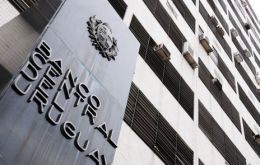
Uruguay and Peru are the first Latin American countries in line for a possible credit rating hike by Moody's Investors Service, at a moment when sovereign upgrades are expected to become more scarce in the region, a senior analyst with the ratings firm said.
-
Monday, March 31st 2014 - 19:28 UTC
Mercosur expects to exchange tariff-reduction proposals with EU next June
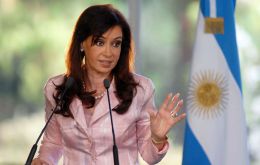
Mercosur expects to present a joint proposal regarding tariff reductions to the European Union during a meeting next June, according to Brazil's Minister of Development, Trade and Industry, Mauro Borges who apparently convinced a reluctant Argentina to join the group.
-
Monday, March 31st 2014 - 19:25 UTC
Brazil/Argentina agree on deal to promote bilateral trade by guaranteeing 'dollar liquidity'
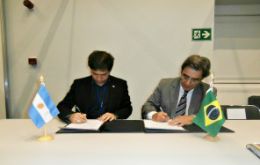
Brazil and Argentina signed a deal over the weekend that seeks to guarantee importers will have enough U.S. dollars to pay for exports, a move to increase trade between both nations that has been hit hard by a sharp depreciation of the Argentine peso.
-
Monday, March 31st 2014 - 16:13 UTC
Latam forecasted to grow 3% this year, but fiscal deterioration is serious
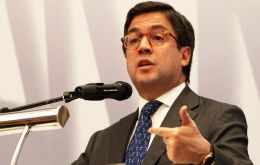
Latin America and the Caribbean’s economy as a whole will grow by 3% this year and 3.3% in 2015 thanks to “improved economic conditions in the United States and Europe”, the Inter-American Development Bank said in a report released over the weekend.
-
Saturday, March 29th 2014 - 09:22 UTC
‘Kelpers’, helping Argentine to understand the Falklands growing nation

The reaction of the Argentine public to Clarin journalist and author Natasha Niebieskikwiat's recently launched book ‘Kelpers’ has been, “less aggressive,” than she expected Natasha told Penguin News.
-
Saturday, March 29th 2014 - 06:17 UTC
Support for Rousseff faltering, but still the strongest candidate for October's election

Support for Brazilian President Dilma Rousseff has faltered ahead of October's presidential election, a poll showed Thursday, although she remains a favorite to win a second term.
-
Saturday, March 29th 2014 - 06:11 UTC
Brazil's 2,3% growth in 2013 came as a surprise, even for Minister Mantega

Brazil's economy expanded 2.3% in 2013, compared with growth of 1% the previous year, the Brazilian Institute of Geography and Statistics, IBGE, said this week. The country's GDP for 2013 was estimated at 4.84 trillion Reais (some 2.05 trillion dollars), the IBGE said.
-
Saturday, March 29th 2014 - 06:06 UTC
Venezuela opposition leader Leopoldo Lopez will remain in a military prison
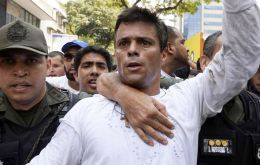
The Caracas Court of Appeals rejected on Friday the defense attorney's plea for the release of opposition leader Leopoldo Lopez, locked up in a military prison since last Feb. 18, Venezuela's Supreme Court said Friday.
-
Saturday, March 29th 2014 - 05:50 UTC
Venezuela’s Failing State
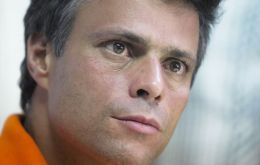
By Leopoldo López - Los Teques, Venezuela — As I compose these words from the Ramo Verde military prison outside Caracas, I am struck by how much Venezuelans have suffered.
-
Saturday, March 29th 2014 - 05:29 UTC
Repsol infighting reveals disappointment with CEO Brufau
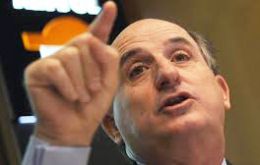
Shareholders of Spain's Repsol approved the oil major's 5 billion dollars settlement with Argentina over the 2012 seizure of YPF at an annual meeting on Friday. The agreement had already been approved by the Argentine Congress and by the board of the Spanish company.
